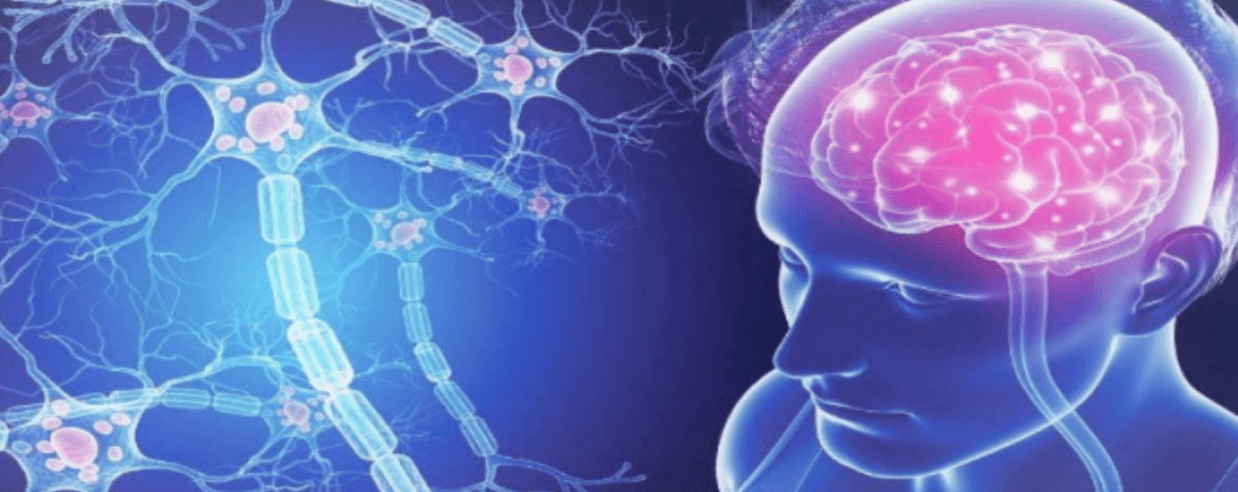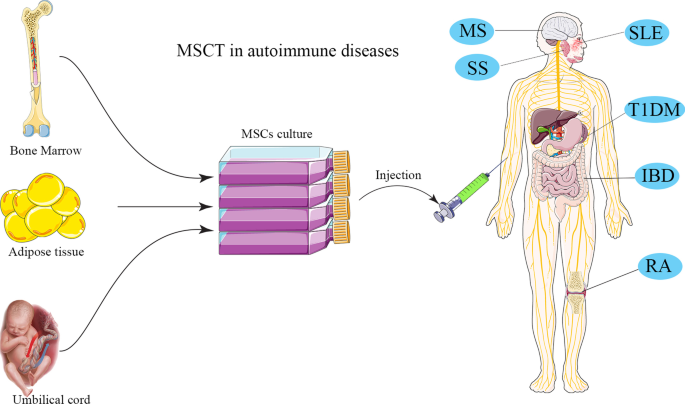The Ultimate Guide To Regenerative Medicine For Multiple Sclerosis
An Unbiased View of Regenerative Medicine For Multiple Sclerosis
Table of ContentsExamine This Report about Regenerative Medicine For Multiple SclerosisThe Regenerative Medicine For Multiple Sclerosis PDFs4 Easy Facts About Regenerative Medicine For Multiple Sclerosis Shown9 Simple Techniques For Regenerative Medicine For Multiple Sclerosis7 Easy Facts About Regenerative Medicine For Multiple Sclerosis Described8 Simple Techniques For Regenerative Medicine For Multiple SclerosisThe Main Principles Of Regenerative Medicine For Multiple Sclerosis
The mesenchymal stem cells transplanted throughout stem cell treatment can split and mature to form brand-new cells that can replace the harmed cells of the nervous tissue. This may recover neurological features in clients with this problem. These benefits of stem cell therapy are more sustained by the capacity of MSCs to advertise healing.Patients with multiple sclerosis are usually treated with mesenchymal stem cells. These are multipotent stem cells that have the capacity to differentiate and mature to form a vast array of cell kinds in the body. As soon as transplanted, these stem cells can create to create healthy and balanced afferent neuron hence sustaining the regrowth of the damaged cells of the nerves.
As soon as transplanted, the stem cells migrate to locations of swelling or damage within the central nerve system (CNS). They are naturally attracted to the sites of injury where the body immune system is attacking the myelin sheath, the protective covering of nerve fibers. The stem cells work by promoting the repair work and regeneration of damaged myelin, potentially recovering function to affected afferent neuron.
Some Known Details About Regenerative Medicine For Multiple Sclerosis
Stem Cell Research on MS The National Multiple Sclerosis Culture, along with various other companies, is actively moneying and sustaining research right into mesenchymal stem cell treatment for several sclerosis to explore their possible and enhance therapy protocols. The goal is to establish safer and extra efficient means to make use of stem cells in dealing with MS.
Little Known Facts About Regenerative Medicine For Multiple Sclerosis.
Here are below from testimonials of the Swiss Medica clinic. The patient took a trip from Romania seeking therapy for MS after hearing favorable responses about stem cell treatment for the disease.
Obtain a complimentary online assessment to find out just how stem cells will certainly work for your situation, and what are the period and cost of the treatment. Uccelli, A., Laroni, A., Brundin, L., Clanet, M., Fernandez, O., Nabavi, S. M. Regenerative Medicine for Multiple Sclerosis., Muraro, P. A., Oliveri, R. S., Radue, E. W., Sellner, J., Soelberg Sorensen, P., Sormani, M. P., Wuerfel, J. T., Battaglia, M
Stem cells are cells in the body that can mature into grow right into that serve an offer functionDetails There are 2 main kinds of stem cells: embryonic stem cells and grown-up stem cells.
are located in some adult cells and body organs consisting of the bone marrow, skin, blood, and mind. Adult stem cells are not as adaptable as embryonic stem cells and are for that reason much more minimal in regards to the sorts of cells they develop into. The unique homes of stem cells give assurance for new therapies that can slow/halt MS disease task and repair work cells damage in the main nerve system.
The Basic Principles Of Regenerative Medicine For Multiple Sclerosis

The procedure includes collecting stem cells from a person's very own (autologous) bone marrow. The individual is after that treated with chemotherapy to deplete the body immune system and stem cells are reestablished into the body where they mature into brand-new, healthy immune anchor cells - Regenerative Medicine for Multiple Sclerosis. Stem cells can be infused into the body in various ways

In 2000, the MS Society of Canada and MS Scientific Research Structure funded a clinical trial including HSC transplants, led by Drs. Mark Freedman and Harry Atkins from the Ottawa Medical Facility Research Study Institute/University of Ottawa. The aHSC treatment available in Canada is a therapy that uses high-dose radiation treatment, additionally called conditioning.

The Facts About Regenerative Medicine For Multiple Sclerosis Uncovered
Neural stem cells (NSC) are located in the brain and can grow into numerous sorts of brain cells consisting of neurons, oligodendrocytes, and astrocytes. NSCs may serve to fix or safeguard the brain and modulate the immune system. Early medical trials in non-human primates showed that treatment with NSCs profited the development of MS-like condition in pet designs.
The outcomes from these security studies are positive for future stem cell and regenerative Read Full Article medicine treatments in MS. Future scientific trials (stage 2 and 3) with bigger varieties of participants and controls are necessary to examine the efficacy of this treatment for MS. As shown by the instances over, there is a vast variety of research happening that will give added solutions regarding the usage of stem cells to treat MS.
Stem cell treatment is taken into consideration risk-free, yet, like any clinical treatment, it brings some threats, such as short-term swelling or pain at the injection site. Major side impacts are uncommon when performed by certified specialists.
The Main Principles Of Regenerative Medicine For Multiple Sclerosis
Numerous sclerosis (MS) is a chronic condition of the main nerves that influences the brain and spine cable. It is identified by the destruction of myelin, a compound that covers nerve fibers, resulting in interruptions in interaction in between the mind et cetera of the body. Symptoms can differ extensively and include muscular tissue weak point, vision issues, imbalance, and exhaustion.
Multiple sclerosis is identified by the body immune system erroneously assaulting the safety sheath (myelin) that covers nerve fibers, causing communication concerns between the mind et cetera of the body. The illness can cause the wear and tear or long-term damage of nerves. Symptoms vary commonly among clients and can consist of tiredness, movement issues, discomfort, and cognitive changes.